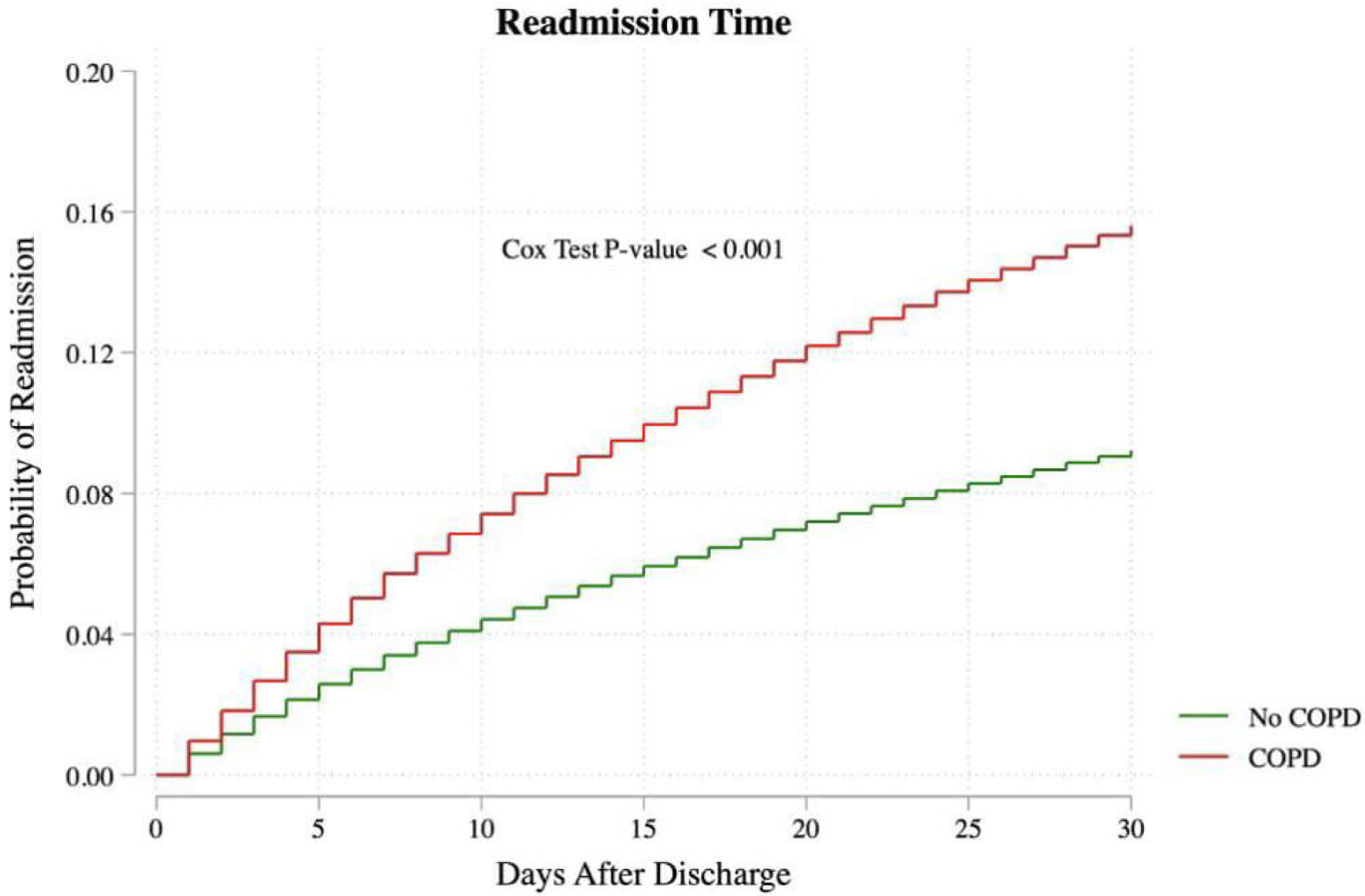Impact of Chronic Obstructive Pulmonary Disease Burden on Patients With Atrial Fibrillation: A Nationwide Study
DOI:
https://doi.org/10.14740/jocmr6243Keywords:
Atrial fibrillation, Chronic obstructive pulmonary disease, Patient readmission, Hospital mortality, Risk factorsAbstract
Background: Chronic obstructive pulmonary disease (COPD) and atrial fibrillation (Afib) are frequently comorbid, with COPD patients exhibiting a higher risk of Afib-related hospitalizations. This study investigated the relationship between COPD and Afib, focusing on 30-day readmission rates and outcomes.
Methods: We conducted a retrospective cohort study using the Nationwide Readmissions Database (NRD) from 2016 to 2020. We included adult patients (≥ 18 years) with a primary diagnosis of Afib while excluding those with December discharges to ensure a complete 30-day follow-up. We compared patients with and without COPD, analyzing 30-day readmission rates, length of stay (LOS), hospital costs, in-hospital mortality, and associated factors using multivariable Cox and logistic regression models.
Results: A total of 1,064,982 patients admitted with Afib were included, of which 873,070 had no COPD, and 191,912 had it. COPD patients were older (73.19 vs. 70.82 years), had a shorter LOS (coefficient = -0.05, P = 0.002, 95% confidence interval (CI): -0.08 to -0.02), and had a higher comorbidity burden (Elixhauser comorbidity index: 5.13 vs. 3.43, P < 0.0001). The 30-day readmission rate was significantly higher in the COPD group (16.0% vs. 9.0%, P < 0.001). Logistic regression revealed that COPD increased the odds of readmission (odds ratio: 1.35, 95% CI: 1.32 to 1.39, P < 0.001).
Conclusion: COPD is a significant risk factor for 30-day readmission and in-hospital mortality among Afib patients, underscoring the need for integrated approaches targeting both diseases.

Published
Issue
Section
License
Copyright (c) 2025 The authors

This work is licensed under a Creative Commons Attribution-NonCommercial 4.0 International License.








